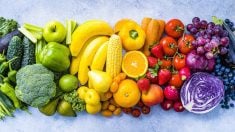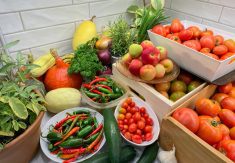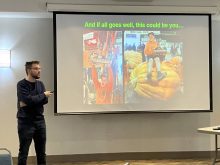Call it a garden in a box.
Exsilio, a Finnish company, has developed a high-tech solution for cultivating crops like salads and herbs in urban environments.
Its EkoFARMER system is a modified shipping container, stuffed with growing equipment.
“Our solution is ideal for restaurants and institutional kitchens wanting to produce their own fresh ingredients,” Thomas Tapio, CEO of Exsilio, said. “The modules also serve as an excellent solution for farmers to expand their traditional greenhouses.”
The unit forms a closed system that is delivered turnkey, requiring only water and electricity outlets. The level of humidity, water, and carbon dioxide can be controlled efficiently in order to produce the optimal yield and the best possible flavour, the company says.
Read Also

Global humanitarian aid slashed by one-third
Humanitarian aid around the world was cut by a third in 2025 and Canada is one of the culprits.
In addition to restaurants and farmers, Tapio also envisions various other prospective industrial user groups for the modules, including research.
“EkoFARMER is an excellent option for business fields in need of salads, herbs, (edible) flowers or medicinal plants,” Tapio said. “The social aspect of urban farming is also prominent. For this reason, our solution is suitable for associations wanting to earn some extra income, or societies wanting to offer meaningful activities for the unemployed, for example.”
With a small footprint, the module can be placed “almost anywhere” and is also movable, the company said, adding it’s also a very efficient production model, noting it’s expecting production levels approximately three times that of a conventional greenhouse.

















